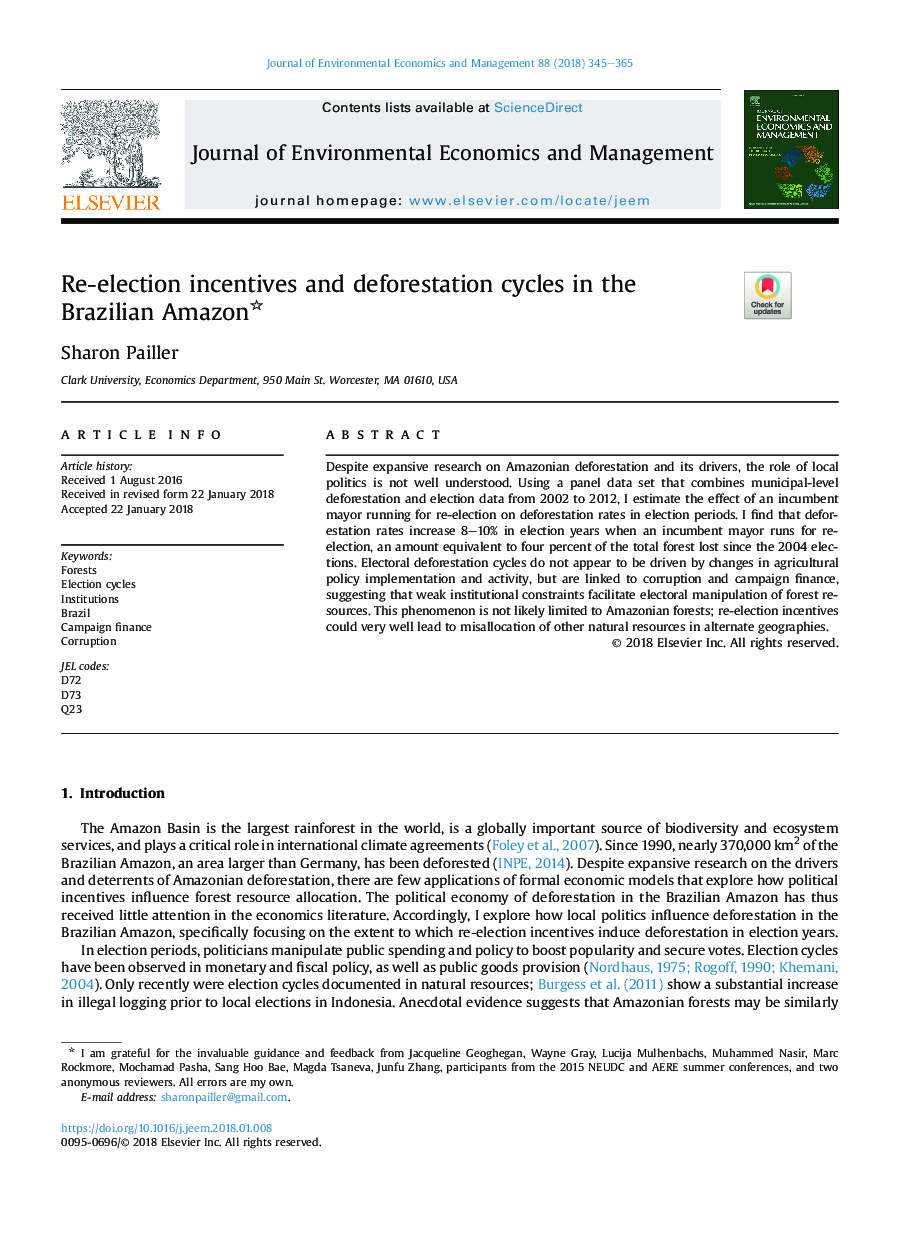| Article ID | Journal | Published Year | Pages | File Type |
|---|---|---|---|---|
| 7361414 | Journal of Environmental Economics and Management | 2018 | 21 Pages |
Abstract
Despite expansive research on Amazonian deforestation and its drivers, the role of local politics is not well understood. Using a panel data set that combines municipal-level deforestation and election data from 2002 to 2012, I estimate the effect of an incumbent mayor running for re-election on deforestation rates in election periods. I find that deforestation rates increase 8-10% in election years when an incumbent mayor runs for re-election, an amount equivalent to four percent of the total forest lost since the 2004 elections. Electoral deforestation cycles do not appear to be driven by changes in agricultural policy implementation and activity, but are linked to corruption and campaign finance, suggesting that weak institutional constraints facilitate electoral manipulation of forest resources. This phenomenon is not likely limited to Amazonian forests; re-election incentives could very well lead to misallocation of other natural resources in alternate geographies.
Related Topics
Social Sciences and Humanities
Economics, Econometrics and Finance
Economics and Econometrics
Authors
Sharon Pailler,
